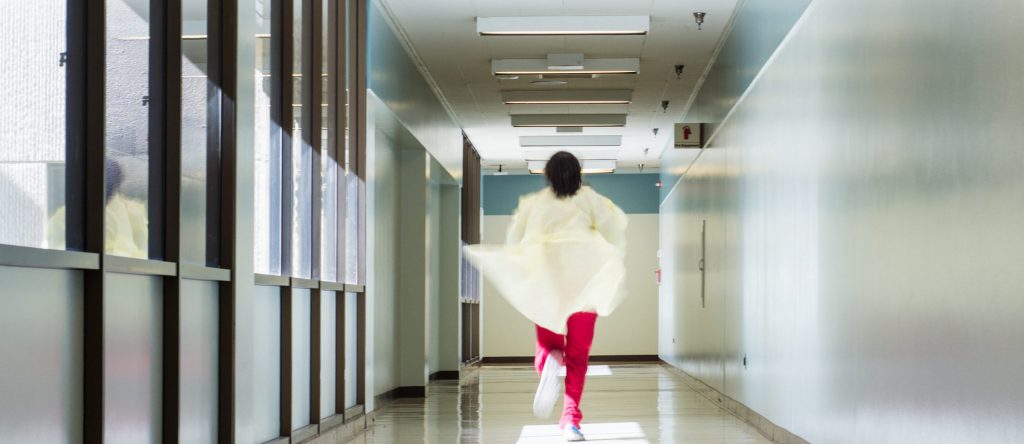
Australia’s nurses and midwives are overworked, undervalued and in danger of burning out, with 32 per cent considering leaving the profession, according to the bleak findings of a Monash Business School survey of nurses and midwives’ wellbeing.
The survey, which has been undertaken every three years since 2007 by Monash Business School’s Australian Consortium for Research on Employment and Work (ACREW), found already high workloads had increased and many nurses felt silenced by management.
A potential shortage in nursing and midwifery is looming. Most of the nursing/midwifery workforce in Australia is already aged 47 or older and set to retire in the next decade, against a backdrop of declining nursing enrolments.
Declining numbers
The survey, What Nurses & Midwives Want: Findings from the National Survey on Workplace Climate and Well-being was undertaken by Associate Professor Peter Holland, with Monash Business School research assistant Ms Tse Leng Tham and Dr Fenella Gill, who is also a research fellow at Curtin University.
Staffing in residential aged care is not safe and staff are constantly burning out and quitting.
Associate Professor Holland said 54 per cent of respondents were not confident about openly voicing their opinions and concerns due to fear of retribution and that efforts to improve employee feedback by managers, had faltered.
The survey found more than half of respondents felt that they have often been excluded from decisions affecting them.
“Seemingly, this has led to the covert effect of silencing nurses and midwives as they perceive ineffectiveness of such voice mechanisms,” he said.
The report’s findings included:
- 32 per cent indicated they have considered leaving the nursing/midwifery profession and 25 per cent reported they were either likely or very likely to leave the profession, compared to an industry average range of between three to six percent.
- 85 per cent of respondents felt that their jobs required them to work very fast, very hard and there is often a great deal to be done at work at least once or twice per week to several times per day. In the three years since the last study, all indicators have increased in terms of work intensification.
- 80 per cent indicated that they were proud of their work every day but chronic exposure to elevated workload and exhaustion, along with poor appreciation for their dedication to the job was hampering work engagement levels.
Lack of management support
Nurses reported feeling that they lacked management support when it came to flexible work arrangements, staffing, workload management and the handling of cases of physical, verbal and sexual harassment directed at them.
Such negative perceptions were most prevalent in NSW and in the areas of mental health, critical care and emergency, maternity care and aged care.
Overall, there has been a relatively steady decline in career satisfaction reported on all dimensions since the previous study in 2013. Satisfaction with overall success in the occupation witnessed fell by eight percentage points, the steepest decline of career satisfaction indicators in the study.


